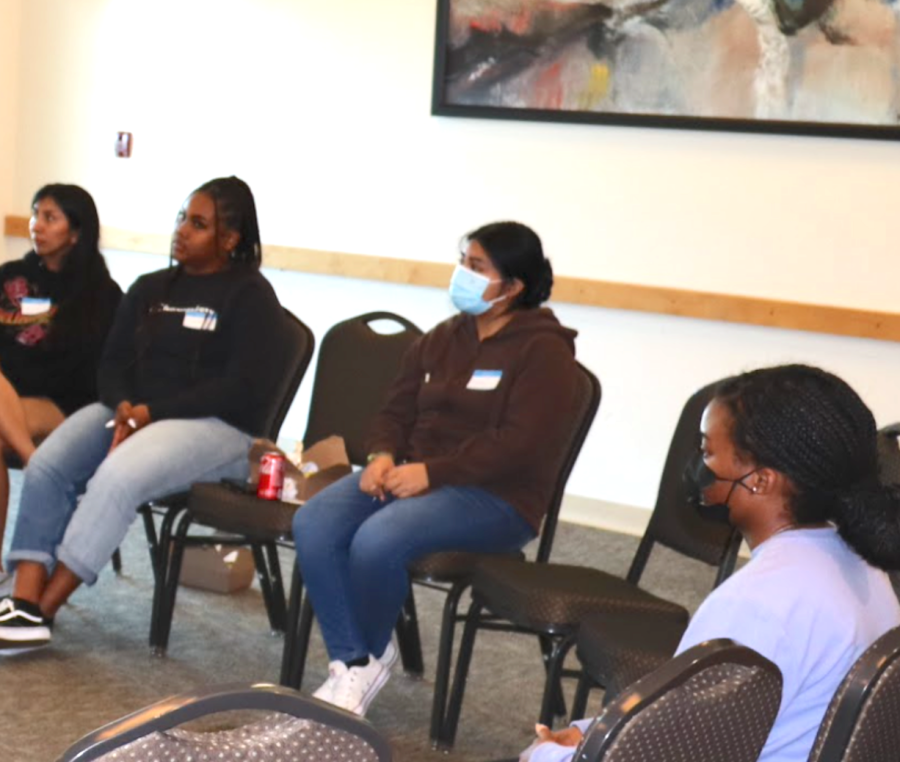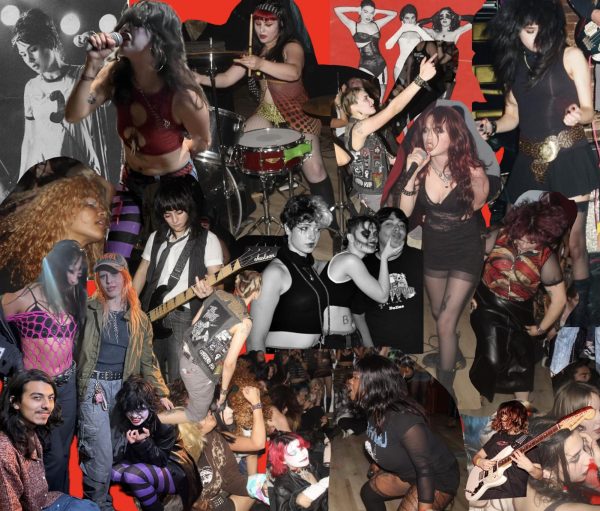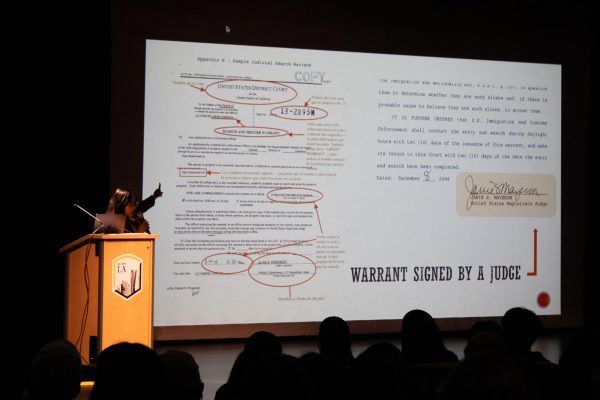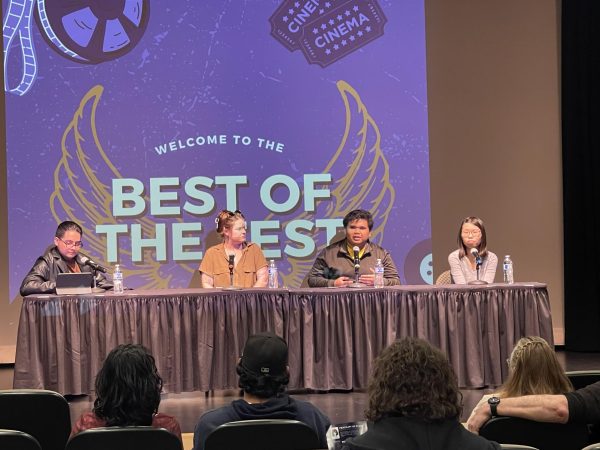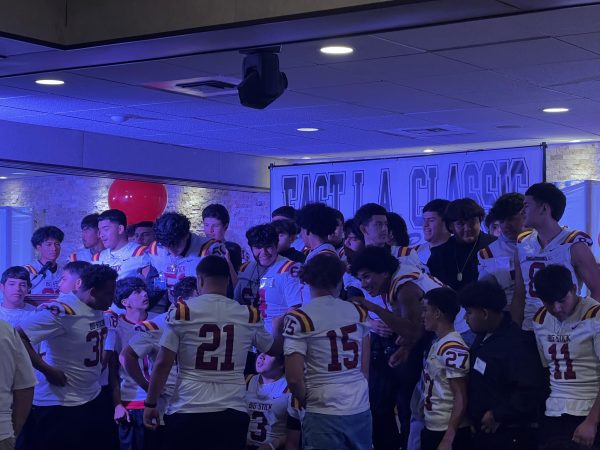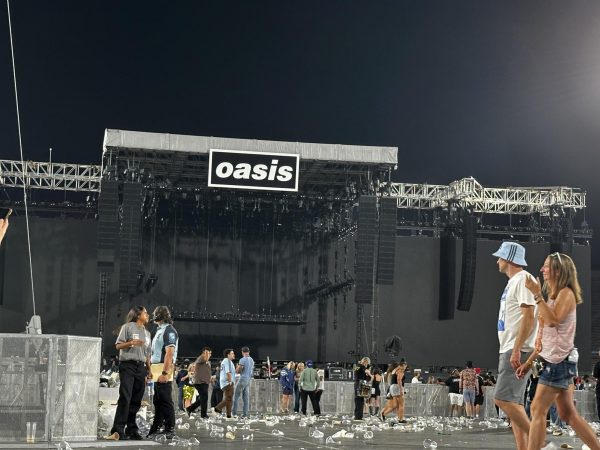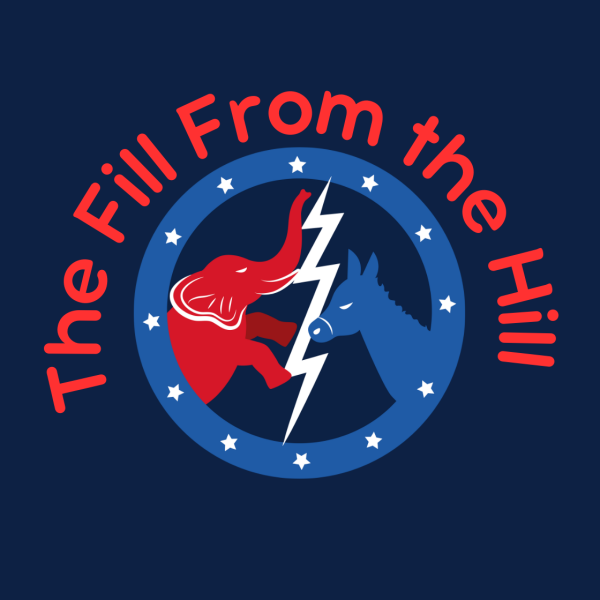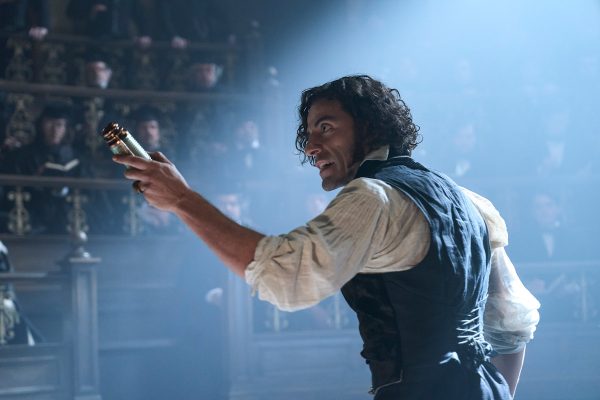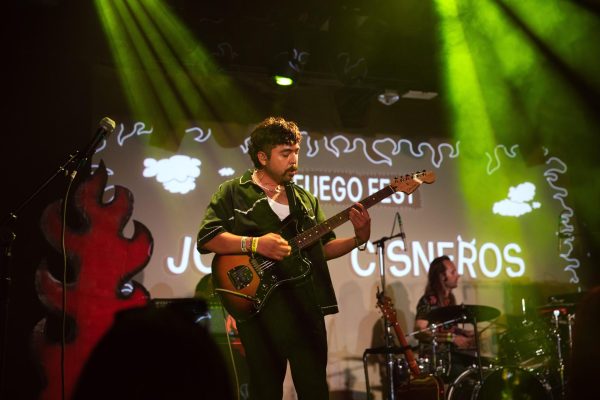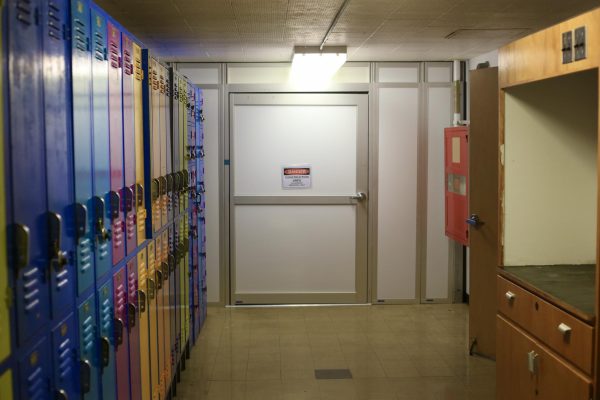‘Clap Backs’ encourages Black students to discuss controversial issues
Students in discussion at the ‘Clap back’ event.
It’s that time of year again when families of all walks of life come together for the holidays, but sometimes older and younger generations may have a difference in opinion that can lead to heated disagreements or tension.
This idea inspired the Student Program Coordinator of the Pan African Student Resource Center (PASRC), DeAngelo Ramirez, to create the “Clap Backs” event.
On Nov. 9, PASRC held this “Clap Backs” event at the Cal State LA campus. Inside the San Gabriel room were tables filled with Beyond burgers, chips, salad, regular burgers, and beverages for students. Ramirez felt it necessary to have food during the event since it was held around lunchtime, and students were likely coming straight from class.
“In the tradition of Thanksgiving that’s coming up soon, and you know the holidays, somebody says something out of pocket, and you just gotta throw a clap back. ‘Clap Backs’ is supposed to be a representation of just how society has put certain things onto Black people that are not OK,” Ramirez said.
Ramirez also had assistance with this event from Rosemary Ché, a television, film, and media studies major (TVFM), and Tymera Leonard, a history major, who were both at PASRC’s event last month.
“I got together with DeAngelo and Tymera over some zoom meetings and helped gather up questions that we wanted to talk about that reflected the issues of the Black community. I personally enjoyed planning this event because I hoped I could get closer with the Black population at Cal State LA,” Ché said.
Discussion topics at the event included colorism, sexism, homophobia and transphobia, and the rule book. The rule book is the unspoken rules that Black men have to follow in order to navigate and survive in a white society, according to Ramirez.
“[The ‘Clap Backs’ event] is for us to talk about those issues that keep us divided,” Ramirez said. “We need to have those conversations because we don’t have a safe space to have them, and when we do, it’s heavily monitored by somebody who’s not from the community.”
Students were encouraged to come in and respectfully share their experiences and opinions. As Ramirez had said, “You don’t clap back on the person. Clap back on the idea.”
Prince Brandon Johnson, a business management major, was in attendance at the event.
“I was interested in seeing what the space for Black students is like on campus because there’s hardly been any this year, in my experience. It was good to come out and experience that,” Johnson said. “I enjoyed the conversation, and I definitely hope that there is another one.”
Counseling and Psychological Services (CAPS) counselors were invited to the discussion to engage in conversation with students, to help them unpack any emotions and aid in better navigating these controversial topics when they come up at Thanksgiving dinner.
Pedro Larios was one of the CAPS members at the event. He is a master’s student in family counseling who is currently doing his hours at CAPS.
“I actually came here at Cal State LA as an undergraduate and I did Pan-African studies as one of my majors, so this is definitely a great way to give back to my major that helped me succeed,” Larios said. “I think the event was great. The topics talked about were extremely relevant and super important…So I’m super happy with the way the event turned out.”
There were eight discussion questions in total, the first one was “How are we first socialized? In what ways are the messages of socialization reinforced?”
Many students felt that socialization started at home with parents or in church and the “respect your elders” phrase. All of the students said they felt that having a difference in opinion or correcting your parents or elder family members was seen as disrespectful. This can be harmful and hinder communication and understanding with their elders. Often, these students are 18 and older and legally adults but are still seen as children. Ramirez mentioned that respect goes both ways and that a disrespectful elder cannot demand respect of you if they haven’t earned it.
Another discussion question was, “Why is it more tolerable for a Eurocentric man to explore his sexuality, yet it is not for a Black man?”
Students discussed the stigma of being a Black gay man in an over-masculinized community and how Black trans women often don’t get credit for their huge role in creating and shaping queer culture. Multiple students pointed out how white men are often the poster boys for gay culture and more widely accepted. It was also discussed that Black gay and trans people are often the most murdered and face the most hate crimes disproportionately.
“Broadly, Black LGBTQ individuals find themselves at the intersection of multiple forms of discrimination, as anti-Blackness and anti-LGBTQ sentiment compound to result in a higher incidence of police interactions, toxic workplace discrimination and large-scale economic difficulties,” according to the Center for American Progress.
One of the last discussion questions was, “Why is it tolerable for the voices of Black women to be unheard?”
Students discussed the poor treatment and oppression of Black women that has been going on since enslavement. One student brought up how Black women are seen as the lowest of low and not respected or taken seriously at all. This led to all the students chiming in about how when Black women go missing, they never get as much air time in the news as a missing white woman, if any coverage at all.
“Black people constitute 13% of the US population and 31% of missing persons; 54% of missing persons are white, though they make up 76% of the population. A 2013 study found that news outlets covered missing white women significantly more often, and more intensely, than everyone else,” according to The Guardian.
Not listening to Black women has also been known to be a problem medically.
“Black women face risks to their health from discrimination—both from health professionals who don’t take their concerns seriously and from biological wear and tear caused by chronic stress,” according to Harvard’s school of public health.
“I didn’t really have a large community of Black friends and family,” Kayla Jamison, a TVF major, said. “Even though I don’t have that direct connection, I still can relate to a lot of the feelings and experiences of other people in my community. I appreciate that reassurance that we’re out here and we got each other’s back.”
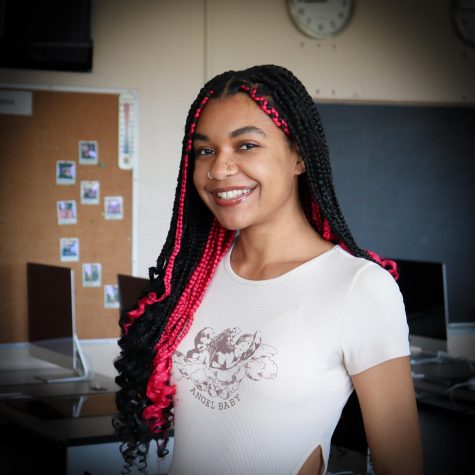
Alyssah Hall is a fourth-year journalism major and the Senior Multimedia Reporter for the University Times. She is passionate about spotlighting minority...

